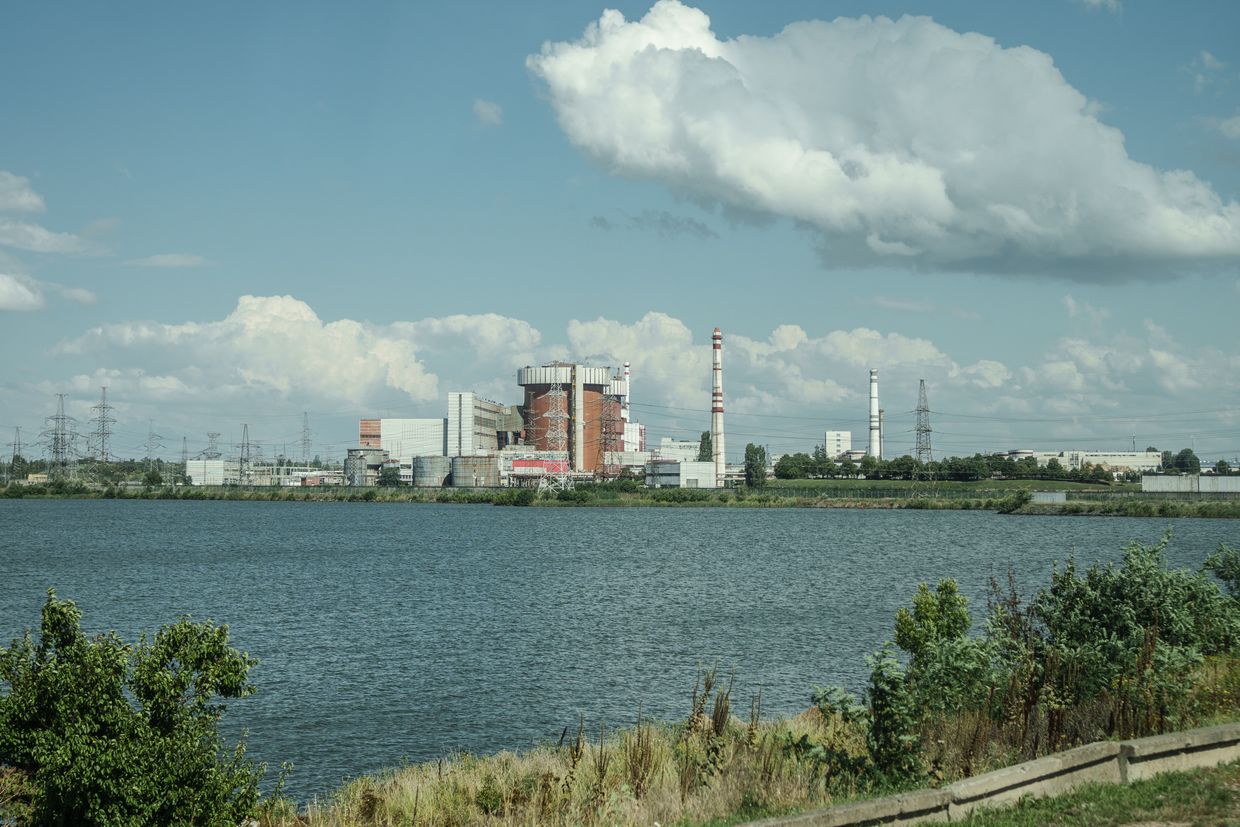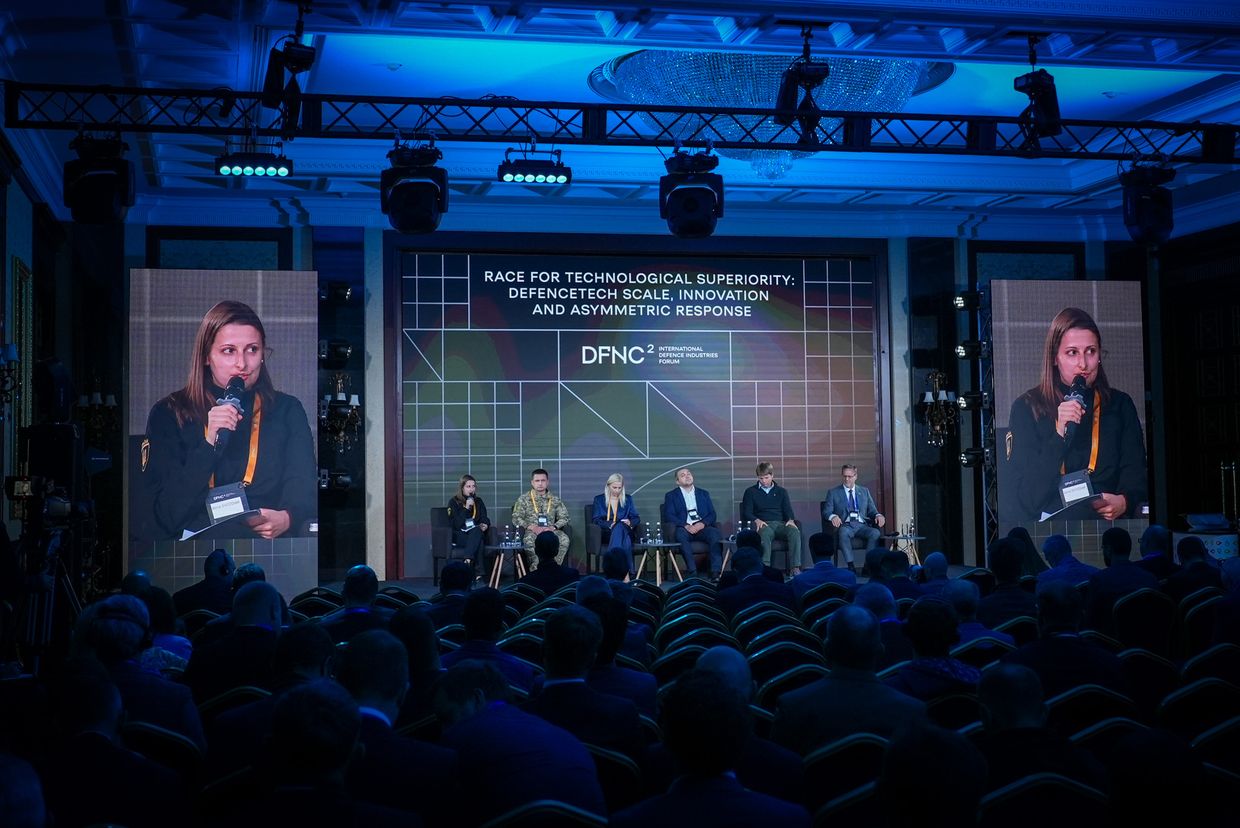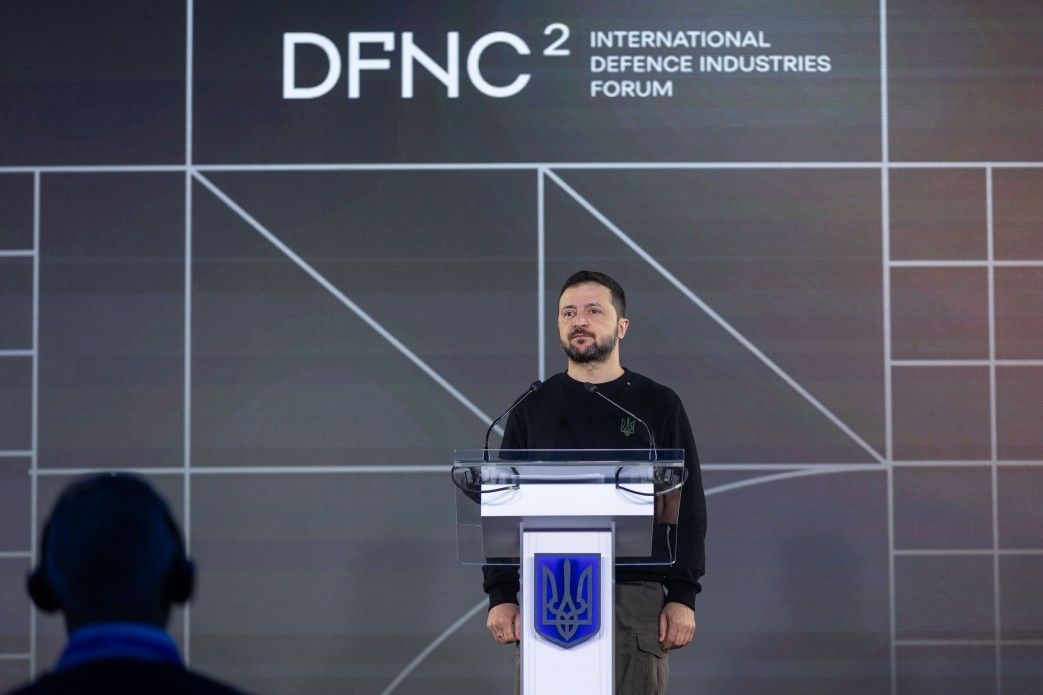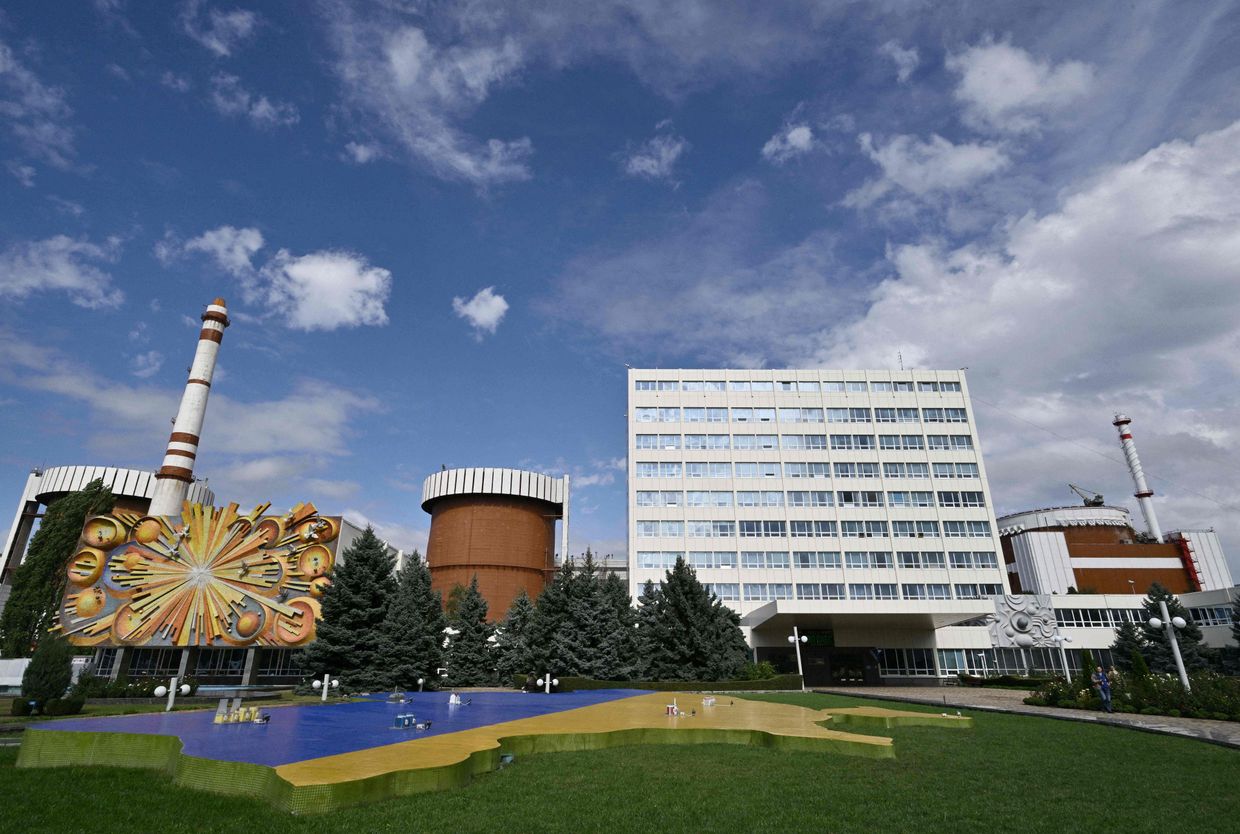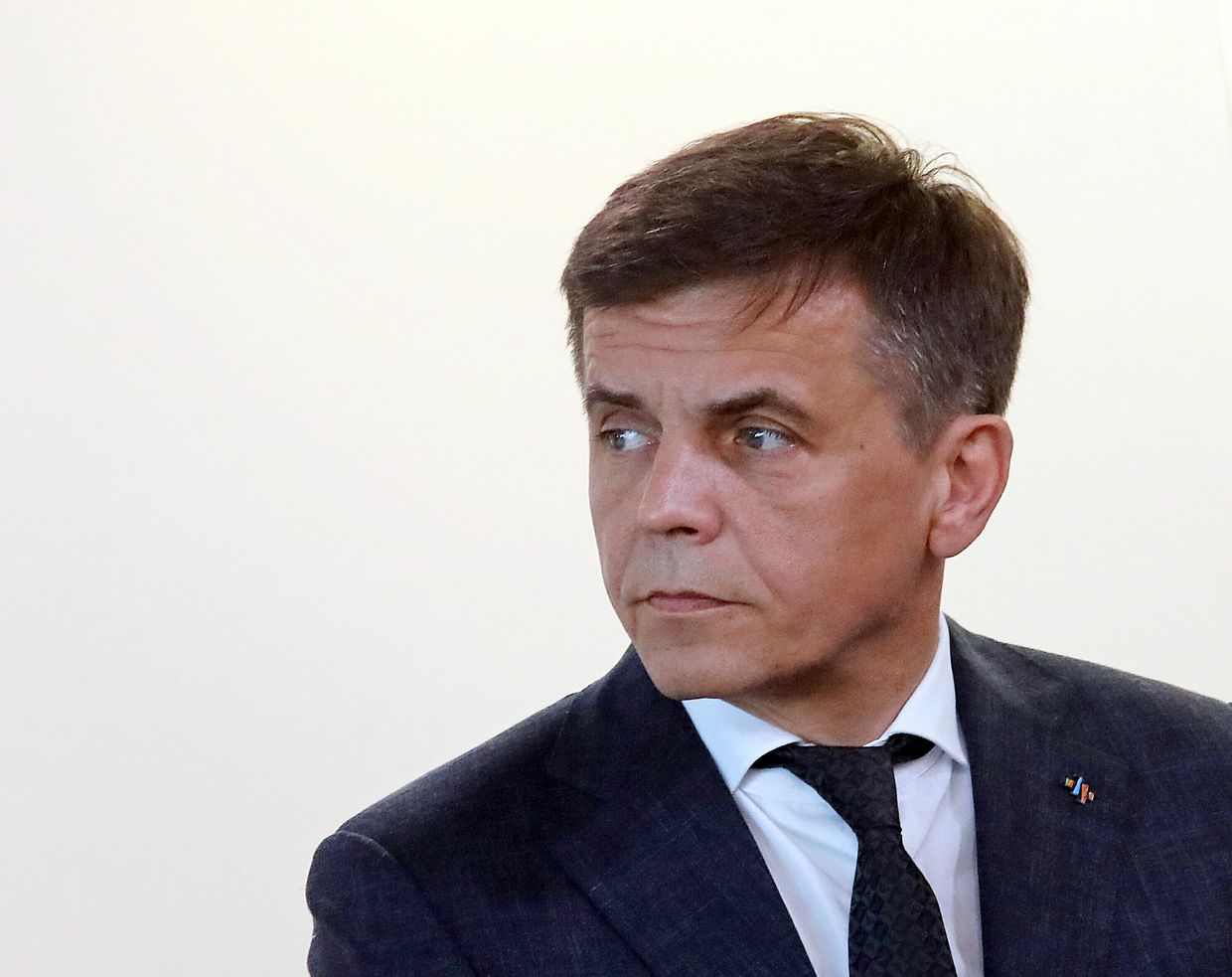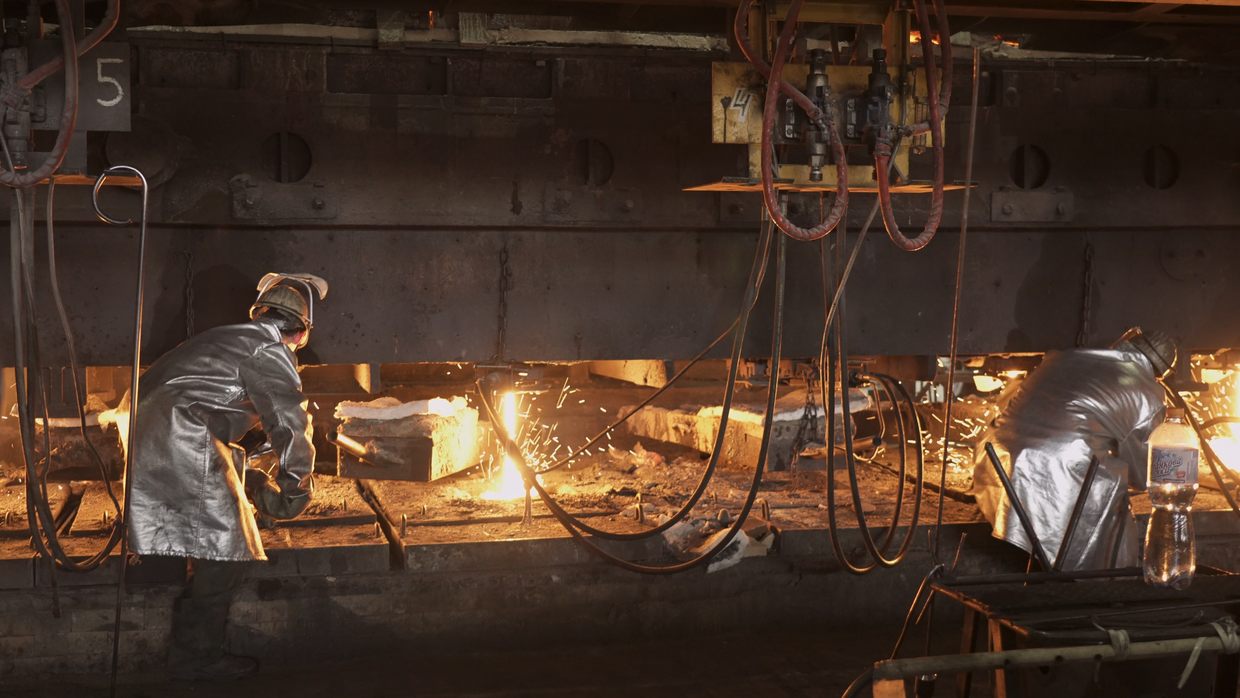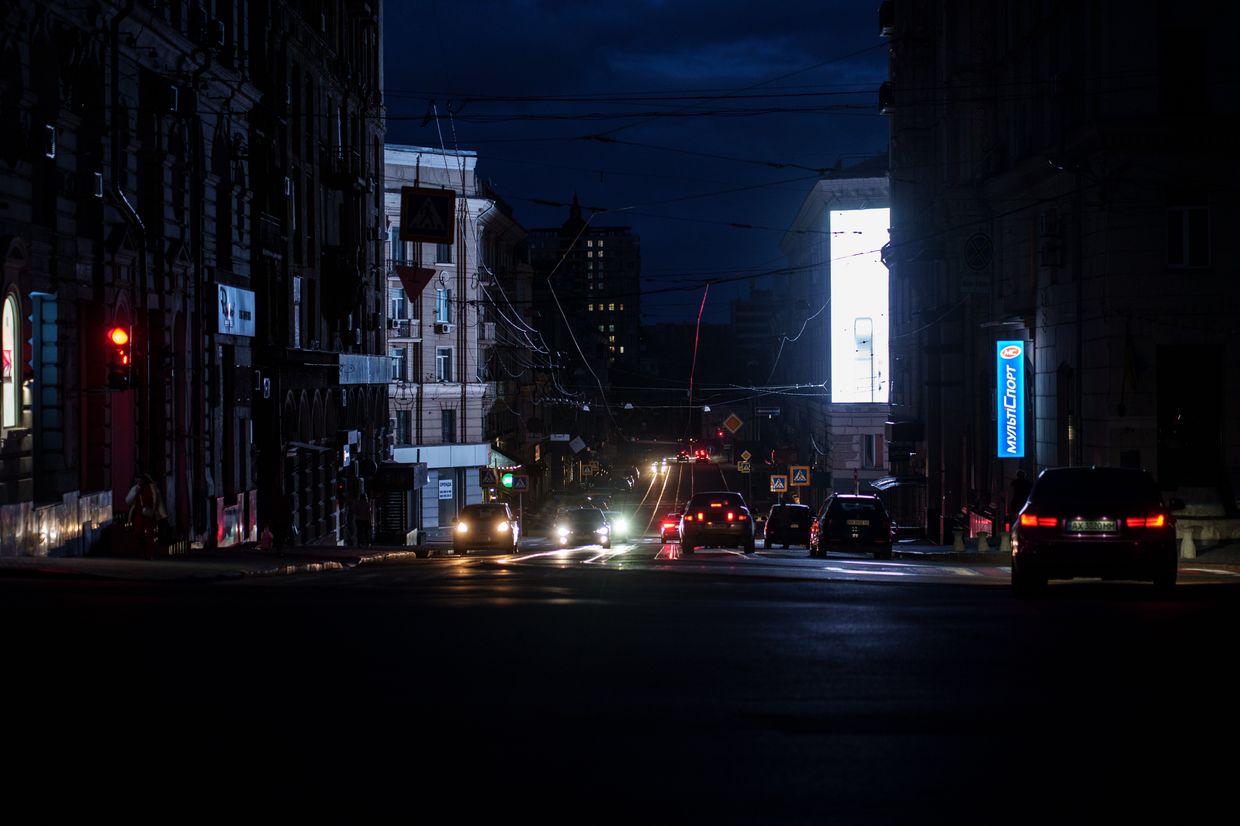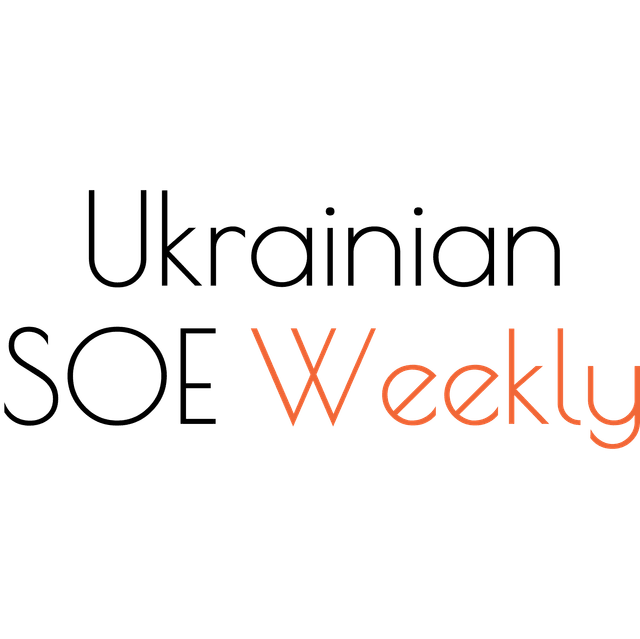Ukraine state-owned enterprises weekly — Issue 149

Editor’s Note: This is issue 149 of Ukrainian State-Owned Enterprises Weekly, covering events from Sept. 22-28, 2024. The Kyiv Independent is reposting it with permission.
Energy sector
Naftogaz Group made Hr 24.4 billion in consolidated net profit in the first six months of 2024, the group reported on Sept. 26 (589 million euros at the average exchange rate over that period.)
This is nearly four times as much as the group’s profit in January-June 2023 (Hr 6.6 billion, or 165 million euros at the average exchange rate over that period).
The financial statements were reviewed by PwC and are available on Naftogaz’s website.
According to Naftogaz Group, its consolidated operating profit for January-June 2024 was Hr 28.9 billion (685 million euros), compared to Hr 14 billion (350 million euros at the average exchange rate) for January-June 2023.
The improvements in financial results were driven primarily by increased revenues from the sale of gas, oil, petroleum products, and gas distribution services, Naftogaz Group explained.
Additionally, from January to June 2024, the group’s companies paid Hr 44 billion (1.043 million euros) in taxes to the state budget, the company said.
As we reported earlier, Naftogaz Group paid Hr 6.1 billion (147 million euros) in taxes to state and local budgets for January 2024 (see Issue 119), Hr 5.3 billion (129 million euros) for February (see Issue 123), Hr 8.3 billion (197 million euros) for March (see Issue 128), Hr 8 billion (189 million euros) for April (see Issue 132), Hr 9.3 billion (215 million euros) for May (see Issue 137), Hr 9.2 billion (203 million euros) for June (see Issue 140), Hr 6 billion (132 million euros) for July (see Issue 143), and Hr 7.2 billion (174 million euros) for August (see Issue 143).
As we wrote in Issue 115, Naftogaz Group paid Hr 83.4 billion (2.1 billion euros) in taxes to the state budget and another Hr 6.8 billion (172 million euros) to local government budgets in 2023.
The group said that it made Hr 23.1 billion (584 million euros) in consolidated net profit in 2023, a significant rebound from its Hr 79.1 billion (2.3 billion euros) loss in 2022. See our Issue 131 for more detail.
Kyiv owes Naftogaz Hr 20.7 billion ($500 million), part of the debt is to be restructured for 15 years. According to EP’s sources, the municipal heat supplier Kyivteploenergo (owned by the Kyiv City Council) owes Naftogaz Hr 20.7 billion ($500 million) as of early September 2024.
The total debt consists of three major parts, the media outlet added. The first part is Hr 6.4 billion ($154 million) for natural gas consumed before 2022. It is planned to restructure this part for 15 years.
The second part of more than Hr 7 billion ($169 million) is the difference in tariffs as of July 1.
One would guess that this refers to the amount of debt resulting from the difference between the market prices and administratively set preferential tariffs for households and other consumer categories, although is not entirely clear from the information given by the media.
The third one, more than Hr 7.2 billion ($173 million), is the debt to Naftogaz Trading, which can also potentially be settled via amicable agreements with instalments of up to 4 years, EP also wrote.
Based on the available information, it is not clear how the “third part” is conceptually different from the “first” or “second” parts, and whether the “second part” can be restructured like the “first part” or settled via amicable agreements like the “third part."
One would expect to see this type of information in Naftogaz’s annual reports, typically as part of management’s discussion and analysis. However, although Naftogaz had published such reports since the launch of its corporate governance reform in 2014 (covering the year 2014 and on), it stopped publishing them in 2023.
This is all the more remarkable because the company was able to publish an annual report in wartime (covering the year 2021, published in 2022), when it had no supervisory board, while it stopped publishing them after it got a new supervisory board in January 2023.
EP’s source noted the lion’s share of the total debt has accumulated since 2018.
“Among the cities, Kharkiv and Kyiv are (Naftogaz’s) largest debtors today. It is clear with Kharkiv — many people have left the city, and utility payments dropped; however, it is the other way round in Kyiv — people keep living in the city and paying for these services. The payments only dropped in the first months of the full-scale war (end-February 2022), and then everything leveled off.
The question is then, where did these debts come from and — if Kyiv’s authorities are not addressing them — why are they laying (new) asphalt and paving (instead of paying their debts)? In fact, this is happening at the expense of Naftogaz,” a representative of the state-owned company said.
According to EP’s source, a meeting of Naftogaz’s supervisory board was scheduled for Sept. 26 to consider restructuring part of the debt. (There were no public releases on this meeting or its decisions from Naftogaz at the time of writing.)
EP’s source in the government wondered why part of the debt was planned to be restructured for an unprecedented 15 years.
“Why not eight or ten years, for example, why 15 years? There is no substantial justification for this decision, no one has seen them,” he said.
As we wrote in June 2024 (Issue 135), Naftogaz assured that it would continue to supply gas to electricity and heat producers to support Ukraine’s energy system. According to Naftogaz’s CEO Oleksiy Chernyshov, the company has the resources to do so. He then pointed out that the debts of large heat and power producers for gas remained a significant problem.
“We are already supplying gas to these companies at the price set by the state. These funds are necessary for the stability of gas supply, so solving the debt problem is also urgent for the stability of the system,” he then said.
Chernyshov also added that Naftogaz would continue to supply gas to Kyiv’s energy companies in a stable manner. As of June 2024, Kyiv has paid 100% for the gas consumed in the 2023/2024 heating season, he said. See Issue 135 for more detail.
As we reported in Issue 68, the government ordered Naftogaz to sell gas at a discount to multiple types of consumers, including households, heating companies, certain thermal power plants, non-household consumers from the defence sector, and regional gas distribution companies. Most of the public service obligations (PSOs) are linked to the duration of martial law.
As we wrote in Issue 77, Naftogaz estimated its net losses in 2022 at Hr 40 billion ($966 million). Chernyshov then blamed significant receivables that arose due to the state’s use of Naftogaz’s working capital to meet the needs of energy consumers.
He said that the company’s underlying receivables had three components: the difference in tariffs (Hr 36 billion, or $869 million), the debt of regional gas suppliers and gas distribution companies (Hr 76 billion, or $1.8 million), and PSOs for 2022-2023 (Hr 158 billion, or $3.8 billion). See our Issue 77 for more detail.
In December 2023, EP wrote that, according to USAID, the total level of unsettled debts in the gas market exceeded Hr 190 billion ($4.6 billion) in early September 2023 (see our Issue 113). According to the data of the National Energy and Utilities Regulatory Commission (NEURC) seen by EP, the total debt exceeded Hr 200 billion ($4.8 billion) as of Oct. 1, 2023.
“Our goal is to gradually move to economically justified energy tariffs and cancel all PSOs by the fourth quarter of 2025. This should be done in conjunction with the systematic settlement of debts in the gas and district heating markets,” Oleksandr Butenko, then deputy minister of communities, territories and infrastructure, explained. See Issue 113 for more detail.
However, Naftogaz has recently kept the current gas tariff for households unchanged for at least another year. As before, customers can buy a cubic meter of gas for Hr 7.96 including VAT ($0.19). The tariff remains valid through April 30,2025. See Issue 129 for more detail.
Further gas supplies at a reduced tariff will likely result in corresponding losses for Naftogaz, even if heat and power producers pay for gas.
Banks
The Rada adopts a law on privatization of state-owned banks. On Sept. 19, the Verkhovna Rada adopted Draft Law No. 11474 on the peculiarities of the sale of state-owned stakes in the authorized capital of banks.
According to liga.net, one of the key provisions of the law, which was a requirement of the World Bank, is to allow the sale of any state stake in the bank, not just 100% of the shares, as provided for by the current legislation.
The decision to prepare the bank’s stake for sale would be made by the Cabinet of Ministers, taking into account the opinion of the Financial Stability Council. It would also be up to the Cabinet to decide whether to put the stake up for sale after all the necessary preparations are completed, the media also explained.
If the auction is held in Ukraine, the shares would be sold on Prozorro.Sale. If the auction is held abroad, the method of bidding will depend on the Cabinet’s decision, taking into account the recommendations of the sales advisor.
According to liga.net, this law applies to five state-owned banks — PrivatBank, Ukrgasbank, Sense Bank, PIN Bank, and Motor-Bank — but not to Oschadbank and Ukreximbank.
Sense Bank, PIN Bank, and Motor-Bank were nationalized after the beginning of the full-scale war in 2022. See our Issues 98, 116, and 138 for more detail. PrivatBank and Ukrgasbank had been nationalized earlier. Oschadbank and Ukreximbank have been state-owned since establishment.
According to the National Bank of Ukraine (NBU), the state’s share in the banking sector exceeds 50%, although NBU’s First Deputy Governor Kateryna Rozhkova said that “more than 25% is already too much."
As we wrote in January 2024 (Issue 116), foreign investors were interested in buying Ukrgasbank and Sense Bank.
As we reported in June 2024 (Issue 138), according to the updated IMF Memorandum, the Cabinet of Ministers was preparing to sell two systemic state-owned banks, Sense Bank and Ukrgasbank, and planned to appoint an internationally recognised financial adviser by end-September 2024.
On Sept. 10, Prime Minister Denys Shmyhal confirmed that privatization was planned for Ukrgasbank and Sense Bank, but also said that it was difficult to say when this would happen. Shmyhal added that the Cabinet was not currently considering the privatization of Oschadbank or Ukreximbank, and there was no strategy for their sale.
In 2017, two members of the SOE Weekly team, Andriy Boytsun and Dmytro Yablonovskyi, published a policy paper titled “What Should the State Do with its Banks?” They concluded that the risks of state ownership of banks in Ukraine outweighed the benefits, suggesting that all state-owned banks should be privatized. The state can obtain the same services from private banks or international development finance institutions.
According to the State-Owned Banks Reform Strategy that the government adopted in 2020, the state intended to privatise all state-owned banks.
Rada aims to increase the income tax for banks to 50% retroactively for a second year in a row. On Sept. 17, the Verkhovna Rada passed Draft Law No. 11416-d on tax increases in the first reading to finance the needs of the state budget.
According to Forbes Ukraine, compared to the version approved by the Rada’s Committee on Finance, Tax and Customs Policy at its meeting on Aug. 29, the Rada added a provision to increase the income tax for banks from 25% to 50% in 2024. This could generate Hr 27.3 billion ($661 million) in state budget revenues in 2024 and Hr 9.3 billion ($225 million) in 2025.
This idea was not supported by the Finance Ministry and the National Bank of Ukraine (NBU).
Deputy Minister of Finance Svitlana Vorobey expressed fears that banks would not increase their holdings of government bonds in this case, while, according to the ministry’s calculations, the bonds are expected to bring in more than Hr 200 billion ($4.8 billion) in additional revenues by the end of 2024.
However, according to lawmaker Yaroslav Zheleznyak, later the ministry did agree to increased taxes for banks. Since the law would not be adopted as a whole by October 2024, the implementation would be retroactive to Oct. 1, Zheleznyak added.
At the same time, the NBU considers an increase in banks’ profit tax to 50% too risky. “The risks of such a step to solve the problem of financing the deficit and stable credit growth would be greater than the benefits. The balance is quite fragile and needs to be maintained,” NBU Governor Andriy Pyshnyi said.
On Sept. 17, Pyshnyi announced that the NBU would develop a package of measures to ensure that banks expand their coverage of the state budget deficit via the purchase of government bonds, and without the NBU issuing new money.
Later, in his interview with Forbes Ukraine, Pyshnyi explained that the NBU and the Finance Ministry were developing individual strategies for banks to raise domestic government bonds to finance budget needs. He expects the biggest contribution from state-owned banks. Pyshnyi also expects that the NBU would have a constructive discussion with lawmakers on this draft law before the second reading.
According to NBU’s First Deputy Governor Kateryna Rozhkova, if banks’ incomes are retroactively taxed at 50% (instead of 25%), two state-owned banks, Ukreximbank and Sense Bank, would be in violation of their capital requirements. This would require an additional capitalization of these banks, meaning a spending of Hr 3 billion ($72 million) from the state budget, Rozhkova emphasized.
Note that this is not the first time the Rada has taken steps to raise banks’ income taxes to 50%. In 2023, parliament adopted a law increasing taxes for banks, with key changes concerning the income tax rate. That rate had been 18%, but the law introduced a windfall income tax of 50% for 2023, applied retrospectively. The income tax as from Jan. 1, 2024 was then set at 25%. See Issue 113 for more detail.
As we reported in Issue 146, Ukrainian banks posted cumulative profits of Hr 120 billion ($2.9 billion) in January-July 2024, with the state-owned banks making 63% of the total.
Privatization
SPFU sets confiscated Motordetal-Konotop’s starting price at $6.7 million. On Sept. 26, the auction commission of the State Property Fund of Ukraine (SPFU) set the terms for the privatization of Motordetal-Konotop LLC, a plant confiscated earlier from sanctioned Russian senator Sergey Kalashnik.
Located in Sumy Oblast, Motordetal-Konotop is one of Ukraine’s largest producers of piston rings for internal combustion engines, the SPFU said.
The starting price was set at Hr 278.5 million ($6.7 million at the current exchange rate).
Other terms include preserving the company’s business; repaying wage arrears, debts to the state budget, and overdue accounts payable (except for debts to sanctioned, Russian, or Belarusian individuals or legal entities); preventing personnel lay-offs for six months; and other standard terms.
The SPFU did not say what amount of Motordetal-Konotop’s debt was to be paid, which makes it difficult to estimate the effective amount that the prospective buyers would have to pay to acquire the asset.
The privatization terms, including the starting price, are yet to be approved by the Cabinet of Ministers. All proceeds from this sale will go to the Fund for the Liquidation of Consequences of Armed Aggression, the SPFU added.
Motordetal-Konotop was transferred to the management of the SPFU by a ruling of the High Anti-Corruption Court (HACC) in 2023.
Confiscation of Russian assets, nationalization, and asset seizure
J seeks to confiscate Myrhorodska, Morshynska, and Alfa Insurance from Fridman, Aven, and Kosogov. On Sept. 25, the Justice Ministry reported that it filed a lawsuit with the High Anti-Corruption Court (HACC) to confiscate these Ukrainian assets of the sanctioned Russian oligarchs.
According to the release, this concerns Myrhorod Plant of Mineral Waters (producer of Myrhorodska mineral water), Morshyn Plant of Mineral Waters Oskar (producer of Morshynska mineral water), Industrial and Distribution Systems, as well as IDS Aqua Service LLC, Potuzhnist LLC, IVA PE, and NOVA.COM SE, which are indirectly owned by Rissa Investments.
According to Schemes investigative journalists, Rissa Investments Limited is 49.99% owned by sanctioned Russian oligarchs Mikhail Fridman, Petr Aven, and Andrey Kosogov. According to the ministry, Rissa is a holding company whose subsidiaries produce and distribute mineral waters, in particular, in Ukraine, Russia, and Georgia. Together with Rissa, they form the Borjomi group of companies.
In addition, the ministry is asking to seize 82% of the shares of Alfa Insurance and 86% of the shares of Alfa-Leasing Ukraine LLC, Paritet Finance LLC, Sense Digital LLC, and Universal Leasing Company ALFA LLC, which are indirectly owned by Fridman, Aven, and Kosogov.
The lawsuit is based, in part, on the Schemes’ investigation, the media outlet noted. In May 2023, Schemes found out that the Russian company Alfa Insurance (AlfaStrakhovanie), controlled by Fridman, provides the Russian Guard with insurance services for official vehicles, including vehicles of military units directly involved in the full-scale war against Ukraine and supporting the Russian regime in the occupied territories.
Investigators also found that another Fridman’s Russian company, X5 Retail Group, continued to cooperate with Russia’s military-industrial complex during the full-scale war, namely with the Voyentorg enterprise of the Russian Defense Ministry, which provides the Russian military forces with uniforms and food.
As we reported earlier, Sense Bank, previously owned by Fridman, Aven, and Kosogov, was nationalized in late July 2023. See more in our Issue 98.
HACC seized sanctioned Russian oligarch Alisher Usmanov’s assets for over Hr 2 billion ($48 million), Inna Bogatykh, deputy justice minister, wrote on her Facebook page on Sept. 26.
More than 165,000 metric tons of iron ore products with an estimated value of more than Hr 2 billion ($48 million) and IT company Peter-Service Ukraine, previously controlled by Usmanov, were seized, she explained.
The deadline for challenging the decision in an appellate court was running out. The Justice Ministry is doing its best to have the first-instance court’s decision upheld, Bogatykh added.
As we wrote in December 2022 and February 2023, the Economic Security Bureau of Ukraine handed over almost 170,000 metric tons of Usmanov’s iron ore to the Asset Recovery and Management Agency (ARMA). See Issues 68 and 74 for more detail.
Ukrainian SOE Weekly is an independent weekly digest based on a compilation of the most important news related to state-owned enterprises (SOEs) and state-owned banks in Ukraine.
The contents of this publication are the sole responsibility of the editorial team of the Ukrainian SOE Weekly.
The SOE Weekly is produced and financed by Andriy Boytsun. Communications support is provided and financed by CFC Big Ideas. The SOE Weekly is not financed or influenced by any external party.
Editorial team: Andriy Boytsun, Oleksiy Pavlysh, Dmytro Yablonovskyi, and Oleksandr Lysenko.


